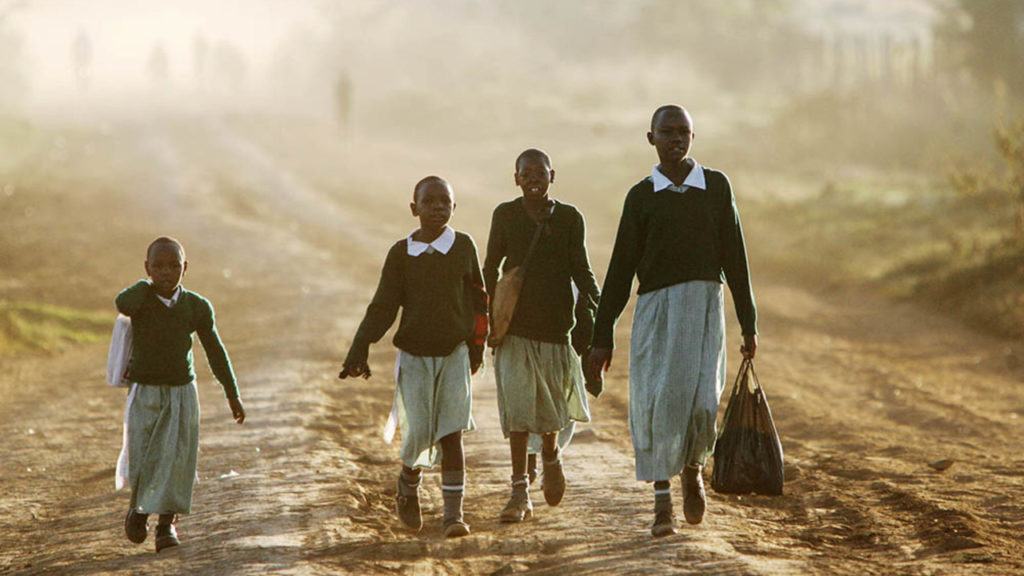GCPEA News
Making Africa’s schools safe in the midst of war
Mail & Guardian, June 15, 2017
By Gisela Schmidt-Martin
The Nigerian Defense Ministry official described how the authorities had built ditches around schools and installed security lighting and set up roadblocks to keep Boko Haram fighters from invading schools and carrying off students and teachers. She explained how the government has moved thousands of students in the most heavily-affected areas to safer areas to allow them to finish their studies free from fear and attack.
I heard this account in November in Ethiopia’s capital, Addis Ababa, during a gathering of representatives of the armed forces and ministries of defense and education from 14 African countries. This unlikely group of education actors and military men and women had come together to strategize on how to make education safe at times of conflict. The governments of all 14 countries had endorsed the Safe Schools Declaration, an inter-governmental political commitment to take concrete measures to protect students, teachers, schools, and universities from attack during times of armed conflict.
As I listened, I thought of the hundreds, even thousands, of children kidnapped by Boko Haram, whose very name claims that Western education is forbidden. And I was encouraged to hear of the other creative solutions countries had developed to keep schools safe places for children in some of the world’s most difficult situations.
We have all seen reporting of horrific deeds committed against children in today’s conflicts. But it’s important to acknowledge that there are measures that can be, and are being, taken to make the lives of children safer.
An education director from Niger told us how his ministry was raising awareness among teachers about the recruitment of children by armed groups, and risks linked to explosive devices. He told us how children who cannot reach school for security reasons are getting their education through a radio program.
South Sudan is making sure that its children are taught life skills and peace education, and is encouraging communities to put emergency preparedness plans in place that allow education to continue despite the country’s ongoing conflict.
In the Democratic Republic of Congo and South Sudan, soldiers have been ordered not to use schools as bases or barracks. This is important because troops often find it convenient to take over school buildings, potentially turning them into military targets, either pushing children out or endangering the safety of children who remain in the buildings, and exposing them to risks of recruitment and exploitation by the soldiers.
A UN peacekeeper working in the Central African Republic told us that her battalion had convinced a number of militias to evacuate schools they had been occupying and using as bases, allowing the schools to be restored to their original function as places of learning and growth.
And we heard that in Mogadishu, Somalia, high school students had been able to sit their final exams for the first time in decades, because security had been placed around the exam sites to prevent attacks by Al Shabaab militants.
An initiative of the governments of Argentina and Norway, the Safe Schools Declaration was opened for countries to join in 2015. South Africa was among the first countries in the world to step up and signal its endorsement. Today, 65 countries—including 17 African nations—have signed on, meaning that more than one third of the world’s countries have made clear their intention to protect education from the ravages of war.
The declaration suggests a range of practical steps that countries can take to reduce the risks that children in conflict face. Central among these is the commitment to ensure that schools and universities are not used by armed forces or groups in the course of their operations.
The African Union’s Peace and Security Council has recognized the positive effect of the Safe Schools Declaration and has urged all its members to join. It was the first such regional organization to call for universal support for the Declaration among its members. It’s an ambitious, but achievable, goal. A good place to start would be within the Southern African Development Community, where Lesotho, Malawi, Mauritius, Namibia, Seychelles, Swaziland, Tanzania, and Zimbabwe have yet to join.
We should expect the highest standard of conduct from peacekeepers. The use of schools for military purposes is strictly prohibited for United Nations peacekeepers. The African Union should adopt a similar rule for troops deployed under its auspices.
We should also work to ensure that attacks on schools are explicitly prohibited, and that the obligation to protect schools from military use is included in the training, policies, and doctrine of all armed forces.
Today (June 16) is the Day of the African Child, in memory of the students in Soweto who bravely marched in protest in 1976 to demand higher quality education and respect for the right to learn in their own languages. What better way is there for African states to honour their children than by endorsing and implementing the Safe Schools Declaration?
Gisela Schmidt-Martin is a coordinator with the Global Coalition to Protect Education from Attack.





